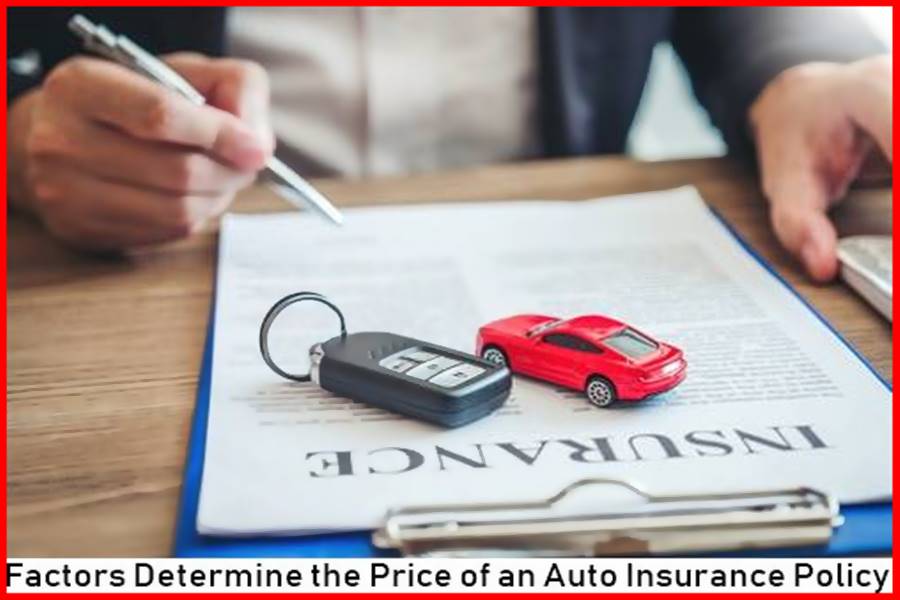Factors Determine the Price of an Auto Insurance Policy
Owning a car is already an expensive affair, that too without including the tear-jerking cost of maintenance and the fortune-draining cost of gas. But the woes to own and afford your commute do not end there.
In almost every state of the US, it is mandatory to have a liability insurance policy, along with some more that can dramatically increase the price of car insurance. Since it is illegal to drive a car without the stipulated auto insurance, there is no way to skip this cost. But for some people, the cost could be even more. DUI Lawyer in Arizona
There are many factors that directly or indirectly affect the cost of your auto insurance and even the premium prices. Some of these factors are beyond your control, while some can be managed to bring down the cost by a considerable amount. But why does any factor affect your auto insurance rates? Let’s understand that first.
Why Do Insurance Rates Fluctuate?
Insurance companies are a business, and like every other business, they need to make money. Making money from the insurance policies is only possible when they don’t get too many claims, but get a lot of policyholders paying premiums. To ensure this, insurance companies are more of a risk management company rather than car repair coverage companies.
So when anyone opts for an insurance policy, the insurer does a thorough analysis of every possible risk associated with the policyholder. More risk associated with the person will result in higher insurance prices. Most insurance companies don’t even provide a quote to people who don’t have a driving license or whose license has been suspended.
Factors Determining the Price of an Auto Insurance Policy
Different companies have different methods of deciding the price of the auto insurance policy. You can get your insurance from the cheapest company that sells it and yet they too will consider these factors to some degree and it will impact the price. Let’s put it this way; some direct factors impact the price of the insurance policy, and we’ll call it (with all our creativity), “Direct factors” and the factors that affect the price of insurance indirectly will be called “Indirect Factors” (with the same use of our creativity).
Direct Factors
Driving record: The absolute most important factor in deciding the price of your auto insurance policy is your driving record, and it is the first thing the insurance company will take a peek at before giving a quote. The better your driving record, the cheaper your insurance will be. Since the company will be taking a low-risk policyholder, they are less likely to pay for an insurance claim. This makes them want to have you on board and they will give you lower prices for that.
Location of the Garage: Where you operate your car or store it in the garage directly impacts the cost of an insurance policy. This is because there are places with higher rates of auto theft, vandalism, etc. All these factors make it more likely that your car will be damaged, increasing the insurance company’s risks. Hence, you’ll have to pay more than average.
Your Vehicle Usage: How much you drive your vehicle is a very strong and impactful factor in deciding the price of the auto insurance policy. Statistically, the more you drive, you’re more likely to be in an accident. Hence, companies charge more to cover policyholders who drive often and more. Conversely, if you drive less, you pay less for insurance as well.
Deductible: Deductible is the amount of money you’ll have to pay to cover the damages in an accident before the insurance policy kicks in. For example, if you have set the deductible to $500, and the cost of repairs is around $2,000, the company will have to pay $1,500. There’s a catch here too.
Even if you have collision insurance coverage, if the cost of repairs is under the deductible amount, you’ll have to pay it from your pockets. So if you keep the deductible low, you’ll have to pay more in premiums and vice versa.
Coverage Gap: Car insurance rates are always higher for people buying them for the first time. It is also higher for people with a coverage gap. A coverage gap is a time when your car was not covered by any insurance policy. This could be due to failure to pay a premium, license suspension, etc. Whatever be the reason, coverage gaps will directly affect the insurance policy rates.
Type of Car: Insurance policy prices are also directly affected by the type of car. Expensive cars with expensive spares and higher costs of repairs require expensive auto insurance coverage.
Indirect Factors
Age: Age is an indirect factor that affects the price of a vehicle insurance policy. Statistically, older people have better driving experience than younger people (who also tend to take part in street racing and rash driving). This is why if you are under the age of 25, you’ll probably pay more than the average insurance cost. Since this is an indirect factor, a good driving record (and other factors) might negate it.
Security Features: Many insurance companies charge less in both cost and premium if the car comes with security features that protect it from theft, damage, etc. These features include anti-theft lock, ABS braking, traction control, etc.
Credit Score: Some states and companies take in your credit score to decide the price of the insurance premium. A better credit score will result in lower premium prices.
Gender: Statistically, women drivers are less likely to cause an accident, or have a DUI charge against them. Hence, women get slightly lower auto insurance rates than men.
One Really Should Get This Insurance Policy 2023
Factors Determine the Price of an Auto Insurance Policy
